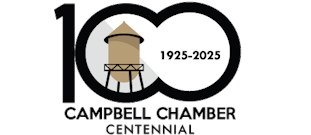TL;DR
Strong vendor and supplier relationships are not built overnight—they’re earned through clarity, trust, and collaboration. Set expectations early, communicate consistently, and prioritize mutual growth. The payoff? Reliability, better pricing, and smoother operations that strengthen your business ecosystem.
Why Vendor Relationships Matter (Even More Than You Think)
Local business owners in Campbell know the value of community connections. The same logic applies to your vendor network—strong supplier relationships keep your business resilient during market shifts, supply delays, and cost changes.
A trusted supplier becomes more than a transaction; they’re a long-term partner helping you deliver on your promises. Think of it as an invisible backbone that holds operations steady when things get unpredictable.
FAQ: Vendor Relationship Basics
Q1: How often should I communicate with key vendors?
Monthly check-ins work for most, but increase frequency during high-demand seasons or new project phases.
Q2: What’s the best way to handle a mistake on either side?
Address it quickly and transparently. Mutual accountability builds more trust than silence.
Q3: Should every agreement be formalized?
Yes—document even informal partnerships. It protects both sides and reduces misunderstandings.
Communication: The Engine of Trust
Clear communication is more than emails and invoices—it’s about alignment. Share forecasts, product changes, and feedback regularly. Tools like Asana, Monday.com, and Slack make collaboration structured and traceable.
Here’s a quick table showing communication touchpoints by vendor type:
|
Vendor Type |
Frequency |
Ideal Communication Channel |
Example Topic |
|
Raw Materials Supplier |
Weekly |
Email / Shared Dashboard |
Inventory forecasting |
|
Local Service Provider |
Bi-weekly |
Video Call |
Service performance review |
|
Distributor / Wholesaler |
Monthly |
In-person / Hybrid |
Pricing or delivery adjustments |
How-To: Build a Foundation of Trust
-
Start with transparency.
Share relevant business goals so your supplier understands what drives your decisions.
-
Keep commitments.
Pay invoices on time and honor purchase agreements—consistency earns credibility.
-
Document everything.
Use shared folders or CRMs to store contracts, receipts, and correspondence. Try tools like HubSpot or Notion for organized tracking.
-
Show appreciation.
Recognize top-performing suppliers publicly or with year-end thank-you gestures.
Vendor Relationship Checklist
Do both sides understand performance standards?
Is there a documented communication schedule?
Are payment and delivery timelines realistic?
Have I built room for feedback loops?
If you can tick all five boxes, your supplier relationships are already ahead of most small businesses.
When to Formalize Intent (and Why It Matters)
Before signing long-term supply agreements, it’s smart to clarify intentions in writing. Business owners can ask what is a letter of intent (LOI)—a structured outline that defines timelines, scope, and deliverables.
This simple step sets expectations early, reduces miscommunication, and helps both parties feel confident before finalizing a contract. It’s the professional handshake that prevents future confusion.
Spotlight: Collaborative Tools That Strengthen Partnerships
If you want to make joint projects smoother, consider Trello for visual task tracking. It allows both you and your vendors to align on order progress and update statuses in real time—ideal for small teams that value visibility without complexity.
Beyond the Contract: Nurturing the Human Side
Remember that behind every supplier is a person. Take time to build rapport—ask about their goals, recognize their wins, and maintain a sense of mutual respect. Many long-term business relationships thrive not because of the contract, but because of goodwill.
Strong vendor relationships are built on small, consistent actions: clarity, trust, and shared success. When communication is clear and expectations are documented, collaboration becomes smoother and more rewarding.
For Campbell business owners, these relationships aren’t just operational—they’re part of what makes your local business community thrive.

